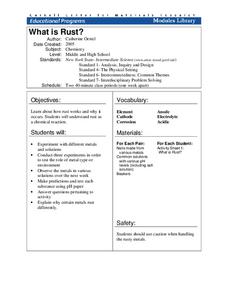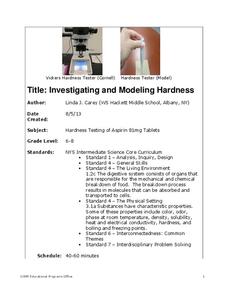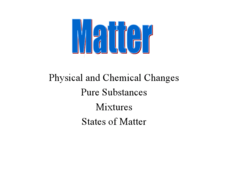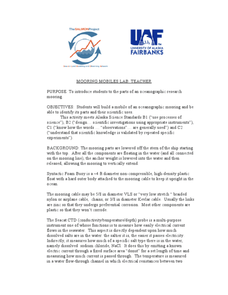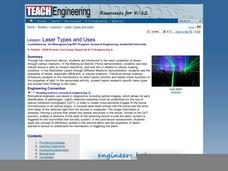Virginia Department of Education
Chemical Bonds
How are chemical bonds similar and how are they different? Provide your young chemists with the resources to more thoroughly understand the concepts of ionic and covalent bonds. Pupils research these topics, diagram examples of each...
Teach Engineering
Microfluidic Devices and Flow Rate
When you have to flow, you have to flow. The lesson introduces class members to microfluidic devices and their uses in medicine. They watch a short video on how the diameter affects the rate of flow. The worksheet has individuals...
Teach Engineering
Exploring Acceleration with an Android
Small groups use rubber bands to accelerate an Android device along a track of books. They collect the acceleration data and analyze it in order to determine the device's velocity.
Cornell University
What Is Rust?
Why do metals rust differently? Scholars experiment with metal combinations in a hands-on activity. They create unique environments with different metals and compare the rate and amount of rust for each.
Cornell University
Investigating and Modeling Hardness
Model hardness testing with a self-designed hardness test. Young scholars rate the hardness of different types of aspirin using the Vicker's Hardness scale. They then relate hardness to the solubility of each aspirin tablet.
Kenan Fellows
Ready, Set, Save on Solar Energy Technology!
Does your class have a bright future in the solar energy industry? Science scholars take an in-depth look at what's new in solar technology. After completing research into the solar industry, participants create and market a product in...
Curated OER
It's About Time!
Young scholars examine concept of time, and explore difference between analog and digital clocks; students make art project to represent time and create a time-story problem and solution.
Curated OER
The Appliance Explosion
Students explain why the number of appliances used today differs greatly from the number used previously. They construct a bar graph to show changes in appliance use over a period of time. They also list appliances that could be eliminated.
Curated OER
Elements Commercials
Student teams use a digital camcorder and iMovie to create a commercial about an element. They also use the Internet and their textbook to gather the following information about their element: the name, the symbol, the atomic number, the...
Curated OER
Melting the Ice: Energy Transfer
Learners study thermal energy and energy transfer to sea ice processes. In this energy transfer lesson, students make their own ice cream and discuss energy transfer and thermal energy. Learners view a radiation overhead and its role in...
Curated OER
Water Pressure Blaster
Third graders complete an experiment to introduce them to the concept of water pressure. In this water pressure lesson plan, 3rd graders create pressure in a water bottle and observe the force of water that is created.
Curated OER
Chapter 12 Review, Section 1: Solutions
Here is a different approach to solutions: a worksheet that has chemistry learners use words to describe them! This is an outstanding exercise that will stretch learners to show what they know. They answer questions comparing solutions,...
Curated OER
Matter
In a neat and straightforward manner, this PowerPoint delivers basic introductory information on the properties of matter, physical and chemical changes, and pure substances vs. mixtures. It also defines the states of matter. For some...
Curated OER
How is the Strength of an Acid Determined?
Students study acids and how they can be measured. In this acid lesson students distinguish the properties that create strong and weak electrolytes.
Curated OER
Ionic Bonding
In this ionic bonding worksheet, students observe diagrams about ionic bonds and crystal formation. They answer 37 short answer questions about the properties of monatomic ions, polytomic ions and write correct formulas.
Curated OER
Teaching Avogadro's Number
Students design an experiment to determine Avogadro's number. Students utilize an ammeter, an electrolytic cell and internet research.
Curated OER
Water Monitoring Vocabulary
As the title implies, this is a list of vocabulary terms relating to water monitoring. If your ecology class is learning about how to test water quality, this will be an appropriate reference sheet for them. As a bonus, if you live in...
Curated OER
Properties of Metals
Fifth graders study the properties of metals and use them to identify different properties. In this metal properties instructional activity students complete a demonstration .
Curated OER
Name that metal!
Learners have to have had some experience with metals prior to using this worksheet. They are given five properties common to five different metals. They create or use a dichotomous key to identify the five mystery metals. Tip: This...
Curated OER
Cardiac Function
In this health worksheet, learners look for the connections needed to attain the knowledge of cardiac function. The sheet includes the background information.
Curated OER
Mooring Mobiles Lab
Oceanography experts use candy to construct a model of a bio-physical mooring that would test a variety of factors. Each piece of equipment to be included on the mooring is described within the write-up. As pupils gather the candies for...
Curated OER
Wavelengths of Light
Explore physical science by participating in a visual spectrum experiments. Budding scientists identify the colors in the color spectrum and view the colors in class by utilizing cellophane, flash lights, and other arts and crafts...
Curated OER
Laser Types and Uses
Students examine the properties of lasers and research their types and uses. In this laser instructional activity students view several demonstrations.
Curated OER
Class Presentation on Coal
Did you know that coal was formed from plants? After being assigned a coal-related topic, groups gather, organize, and present information about this energy source. The presentations should include visuals like graphs, charts, tables,...





